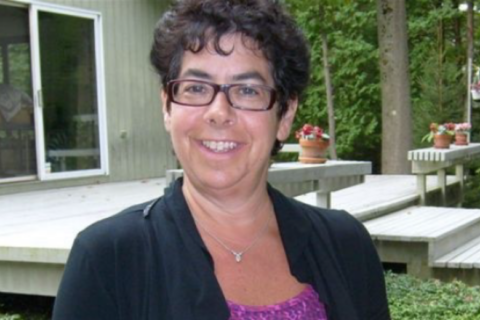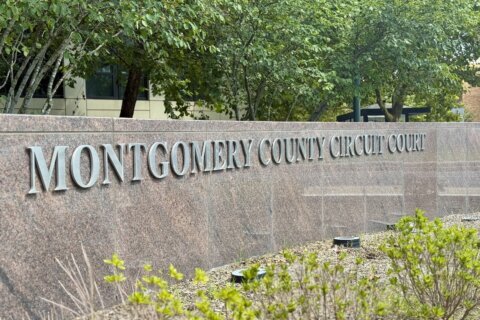Noting the recent discovery of antisemitic graffiti to show up in Montgomery County, Ron Halber put it bluntly, “We have a problem in this county.”
Halber, who is the executive director of the Jewish Community Relations Council of Greater Washington, spoke during Tuesday night’s meeting of the Montgomery County Anti-Hate Task Force.
During the session, the Jewish cohort of the task force presented some history of antisemitism in the United States and in Montgomery County.
Meredith Weisel, regional director of the Anti-Defamation League, offered recommendations including, “Improving safety and security for the Jewish community — but also other marginalized communities, and also local legislation on how to combat white supremacist propaganda.”
She noted that last recommendation includes some challenges due to protections of free speech, but said that is something the panel should work on.
The meeting, which had been previously scheduled, was held two days after graffiti — including swastikas and the words “Club Aryan Excellent” — appeared under a bridge along the county’s Josiah Henson Parkway in North Bethesda.
Black members of the task force, like Ron Wright with the People’s Community Baptist Church, and Joseph Hooks, a small-business owner, asked about ways in which the Black community could be supportive in the fight against antisemitic messages.
Halber told them he didn’t believe that Black Americans have any greater responsibility to respond to acts of bias or hate than any other group. “I think it’s a moral responsibility and an ethical responsibility for all people of good faith, regardless of their background to speak out against it.”
Hooks commented, “This is a beautiful thing that we are all coming together” to fight bias and hate in the community.
The task force is made up of six cohorts, and County Council President Evan Glass explained why when he closed the meeting. “Because these are the most affected communities based on the hate and bias incidence reports from the Montgomery County Police Department.”
The cohorts include Black, Hispanic and Latino, Muslim, Jewish, Asian American and Pacific Islander and LGBTQ+ communities.
The next meeting is scheduled for Sept. 19.








